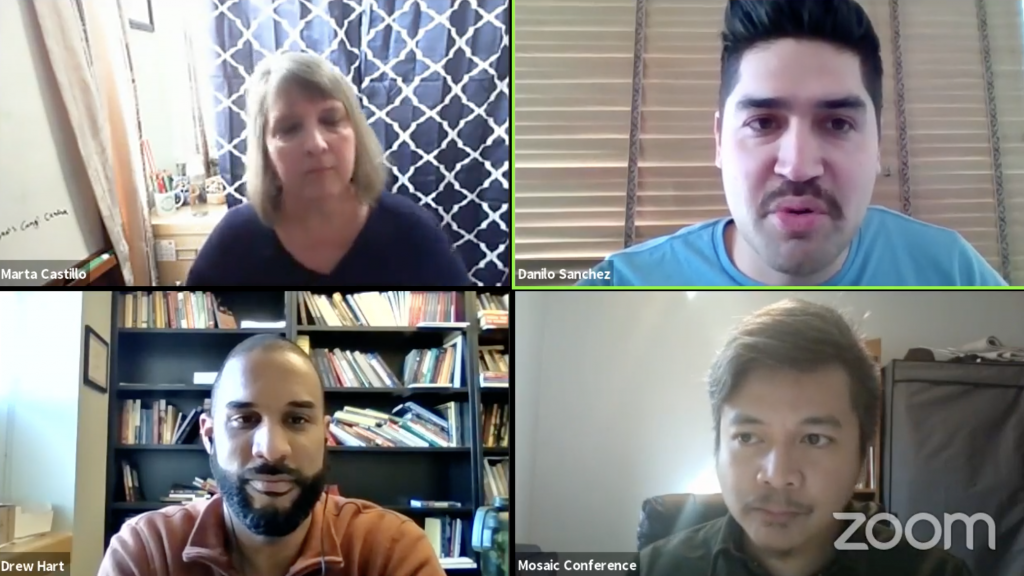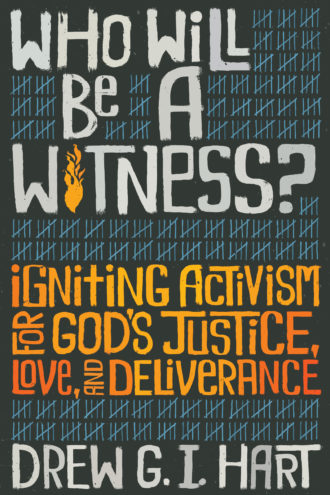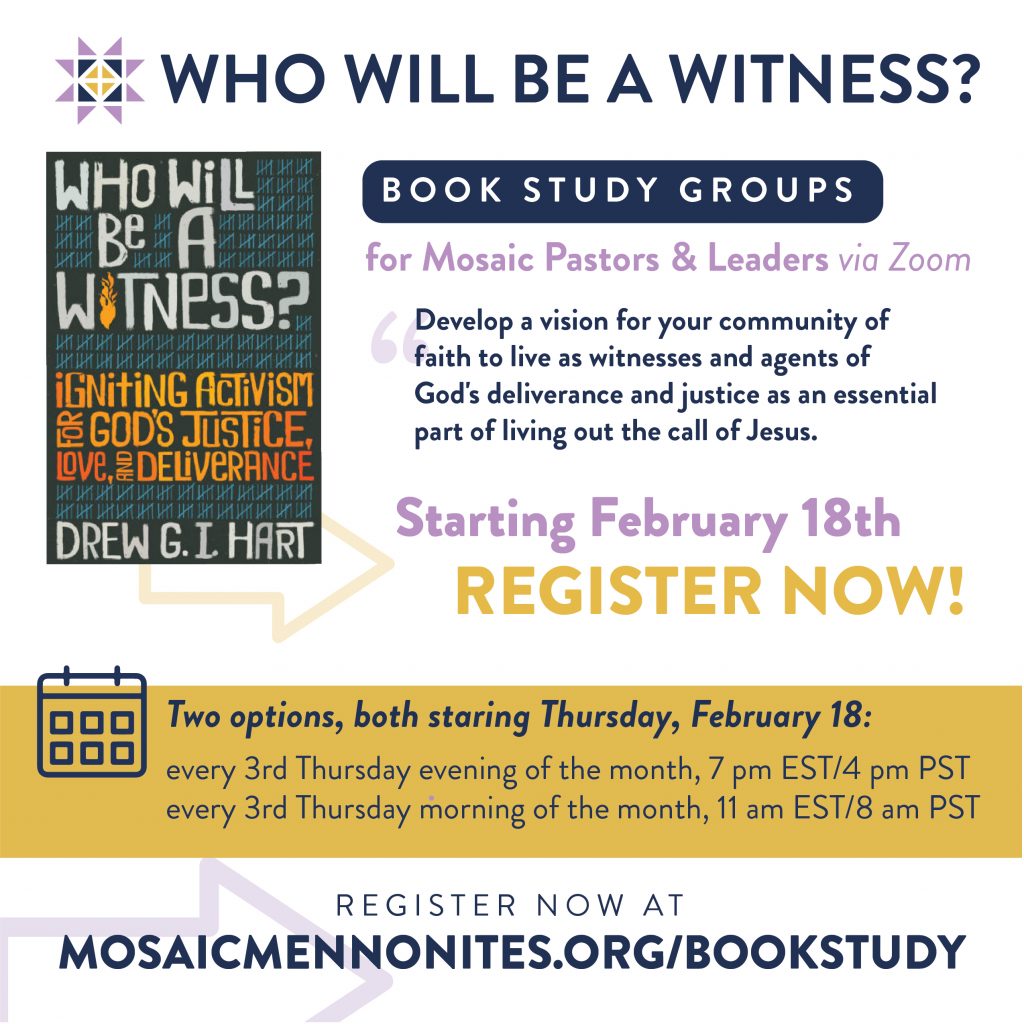I am a white pastor of an all-white Mosaic congregation. I feel it is essential that I work at promoting racial justice, yet I really struggle to know how to do that. My congregation is trying to navigate how we can be involved in promoting racial justice in our community and nation.

As a result, I joined the recent Facebook Live interview with Dr. Drew Hart and the Mosaic Intercultural Ministry Team in hopes that I might receive more guidance on integrating this valuable work with my ministry.
Marta Castillo, Danilo Sanchez, and Hendy Matahelemual, staff members of the Intercultural Ministry Team, led a virtual interview on January 28 with Dr. Drew Hart about his newest book, “Who Will Be A Witness? Igniting Activism for God’s Justice, Love, and Deliverance.”
The conversation started with a question for Hart about economic apartheid. Economic apartheid looks into why people of color are disproportionately poorer in the US. Many people in the US culture believe that people are poor or rich due to how hard they work. However, this is not true. Hart explained how many US government programs for economic uplift in the 20th century were structured deliberately as government handouts for white people and discriminated against people of color.

Hart illustrated how the story of Zaccheus in Luke 19 provides an example of how both redistribution and reparations are necessary to alleviate poverty. In response to Jesus’ initiative in his life, Zaccheus promises to give half of what he has to the poor (redistribution) and to repay four times over anyone he has cheated (reparations).
We are so immersed, suggested Hart, in our cultural assumptions about economics that our ears are deaf to the voice of Jesus on economic issues. We need to embrace “teaching the way of Jesus for our economic lives,” encouraged Hart. Our problem is not a lack of knowledge but a failure of will. “Certainly in the church we can do what Jesus wants us to,” emboldened Hart.
Another question asked Hart what he does when people accuse him of reading the Bible through a social justice lens. All through the Bible, Hart responded, God reveals God’s self as being deeply concerned about justice. Both the Exodus and the words of the prophets show that God is concerned to create justice. We also see Jesus’ concern and action for the deliverance of the poor and oppressed. The Bible is a book about justice.
“There are basic themes in the Bible that if you don’t address them, something is deeply wrong,” explained Hart.
Hendy Matahelemual raised the issue of nationalism, describing nationalism as being a force in his native Indonesia as well as the US. In response, Hart talked about the myth of American exceptionalism – the idea that the US is different or better because of our form of government.
Hart asked, “How should the church navigate the government?” As Mennonites, who have often seen governmental interaction as something to be minimized, this is crucial. Our interaction, encouraged Hart, should be focused on concern for the most vulnerable and promoting communal responsibility.
The conversations were very helpful in my ongoing quest to learn how I can lead my congregation to work for racial justice. To continue my pursuit, I am also going to be joining one of the Mosaic groups studying Hart’s book. I hope you will join me.
The opinions expressed in articles posted on Mosaic’s website are those of the author and may not reflect the official policy of Mosaic Conference. Mosaic is a large conference, crossing ethnicities, geographies, generations, theologies, and politics. Each person can only speak for themselves; no one can represent “the conference.” May God give us the grace to hear what the Spirit is speaking to us through people with whom we disagree and the humility and courage to love one another even when those disagreements can’t be bridged.

